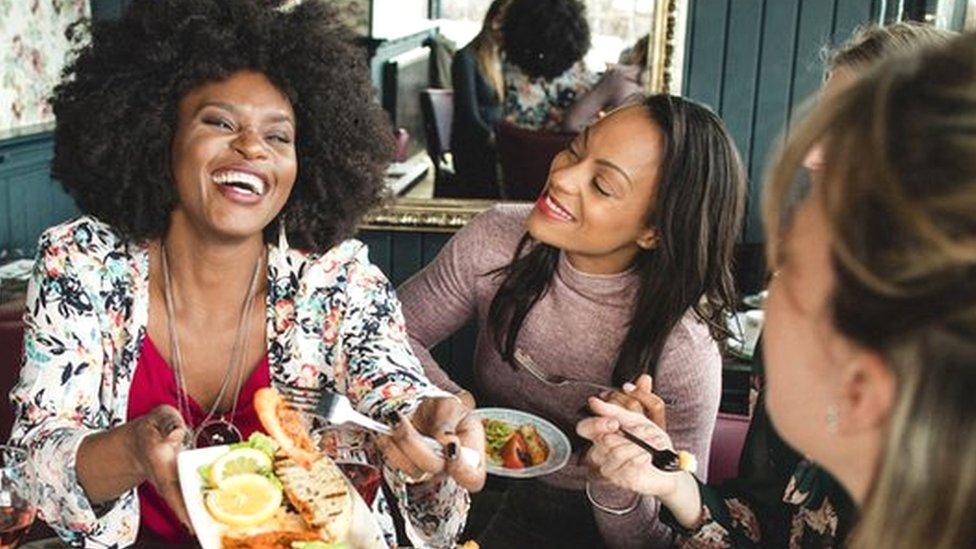Covid: What's the official scientific advice when it comes to schools?
- Published
Dr Heather Payne says school drop off and pick-ups created 'social mixing opportunities' in the pandemic.
The decision to keep schools closed has hit both pupils and parents across Wales.
Most children will now be out of the classroom and learning from home until at least February half-term, unless there is a big drop in Covid cases.
The Welsh Government's decisions on coronavirus are assisted by its Technical Advisory Cell, external (TAC), a group of experts who assess all the latest scientific advice on the virus.
So what exactly is the official scientific advice when it comes to schools?
Dr Heather Payne, a consultant paediatrician and a member of TAC, describes her role as helping to get together the "best advice" to inform ministers making decisions. Here she answers some questions.
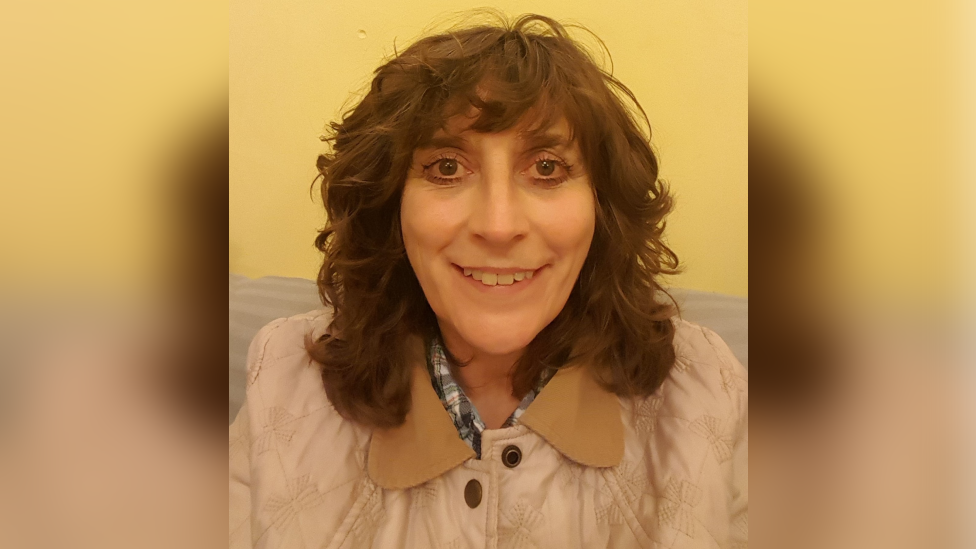
Dr Heather Payne says the new variant meant that schools needed to close
What's changed in the past couple of weeks?
"I think the most important thing is that the overall rates of coronavirus infection were going up. We know now that was due to this new variant," explained Dr Payne.
"It is coronavirus but it's much more infectious than the original one that we were dealing with last year. That in itself led to changing our advice around the operation of schools."
"Now it might be tempting to think that children are spreading it in schools," she said.
"But when we break down the data we find that actually schools are safe, secure environments for children."
However, Dr Payne acknowledged that keeping schools open had meant there were more opportunities for "social mixing," which may help the virus spread, such as walking to and from school, or attending after-school activities.
"Unfortunately, the advice had to change to moderating the amount of time that people spent in school because it was clear that it was associated with greater rates of infection," she said.
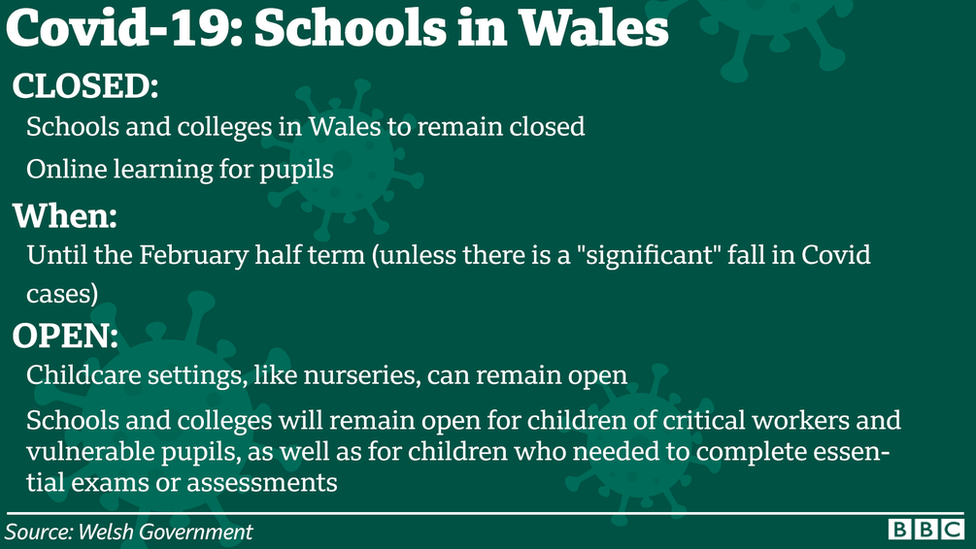
Most children will learn from home until at least February half-term, unless there is a big drop in Covid cases
Where in schools is transmission happening?
Dr Payne said, despite efforts, scientists were still unable to say for certain where in school environments coronavirus might be passed on.
"I think the problem is that we really don't know, we've asked this question to some of the best scientists in the country," she said.
"Even the head of the Office of National Statistics agrees that we just don't have the evidence of where, during the school day, from leaving the house in the morning to getting back in the evening, transmission really takes place."
However, Dr Payne said some areas were riskier than others.
"We know that it's more likely when people are moving around and coming within close contact with each other so that they can have a face-to-face conversation," she explained.
"Communal areas, so in the corridors, or just being in large groups in the school.
"We have said that it should be strongly advised that people wear face coverings during that period [between lessons] so that reduces the risk in what are likely to be higher risk areas."
Dr Payne said teachers had also been urged to open classroom windows towards the end of lessons "so that fresh air can come in and wherever possible."
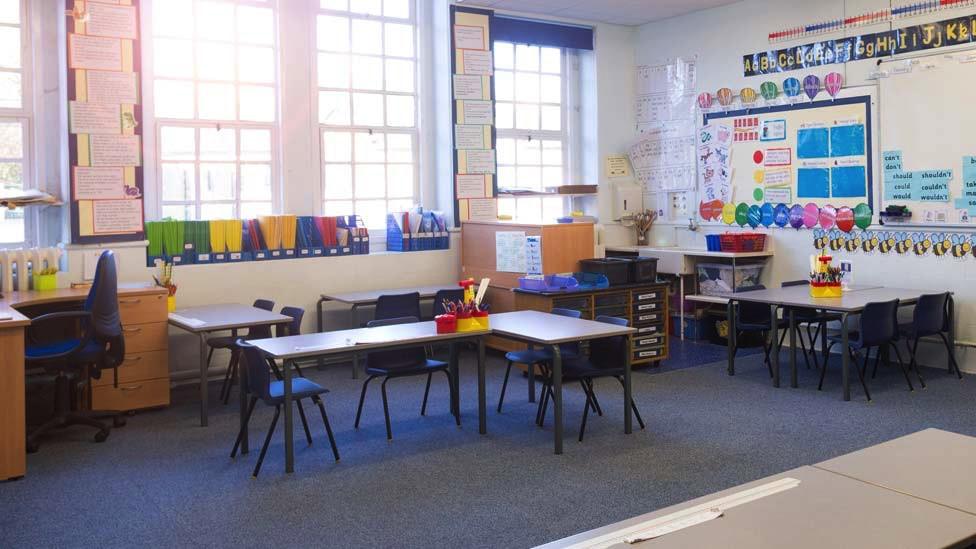
Dr Payne said advice was for teachers to open classroom windows "so that fresh air can come in"
What might need to be done to reopen schools?
"We are looking at all possibilities," explained Dr Payne.
"We have to go back and look at everything."
She said scientists would consider whether schools needed any other measures to be brought in before re-opening, and were continuing to look at issues including Covid testing and face coverings.
Schools currently have the choice on whether or not they want to take up testing for pupils when they return. Those that opt in to the roll-out will be given online training for staff.
In secondary schools, pupils and staff are currently advised to wear face coverings in all areas outside the classroom.
On Wednesday, Education Minister Kirsty Williams said the Welsh Government was reviewing its guidance on schools to see how it could "make those environments even more secure."
She said it was looking at how to reinforce messages on "safe behaviours" for things like walking to school, where children might consider sharing "mobile phones and cans of fizzy drink."
Despite looking at this range of measures, Dr Payne said one of the biggest factors determining when it might be safe to re-open schools was simply whether enough people were sticking to basic rules outside, like social distancing and not mixing with other households.
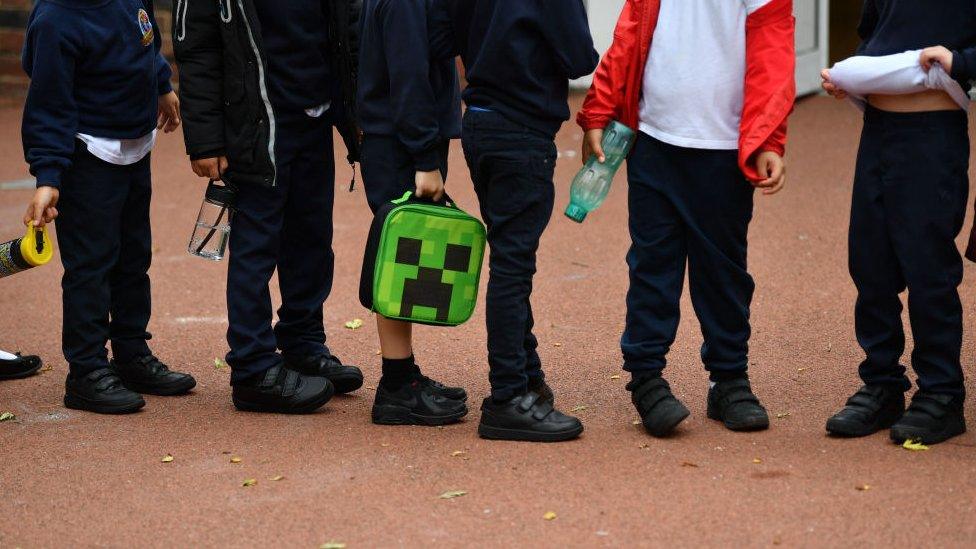
Children under 11 did not previously have to social distance within bubbles - but schools are now largely closed
Do children have different Covid symptoms to adults?
"There is some really important research that does show that children can have a wide range of symptoms in coronavirus," explained Dr Payne, who is also the Welsh Government's consultant paediatrician.
However, she said any child would also have one of the two main symptoms of coronavirus alongside anything else.
"They will have one of the core symptoms, the cough, or the fever. What we've always said is that children present in all sorts of different ways."
Dr Payne said it was more common for children to have a fever with coronavirus, but if there was any doubt, people should look to get a test.
"If you're worried about your child, you should get helpful medical advice from the usual routes, so don't suffer in silence," she said.
"Don't sit on a child with a temperature, always take advice."
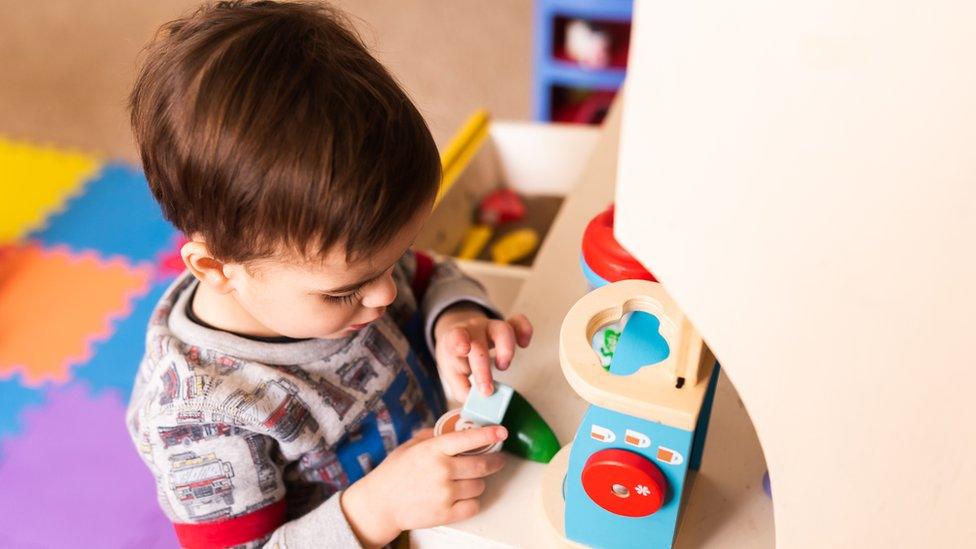
Young children had been allowed to mix with friends during the summer
What's the advice behind nurseries remaining open?
"Nurseries are a vital part of supporting both children and the economy and allowing people to work," said Dr Payne.
"They have not had to restrict their operations, partly because of the intelligence that we're getting. The evidence is that we are not seeing very many cases in nurseries. If that changes as we monitor it, then it's possible that advice might have to change.
"You have to be conscious of any downside of actions to restrict the spread of infection.
"This is the balance that has been arrived at, for the moment."
- Published5 January 2021
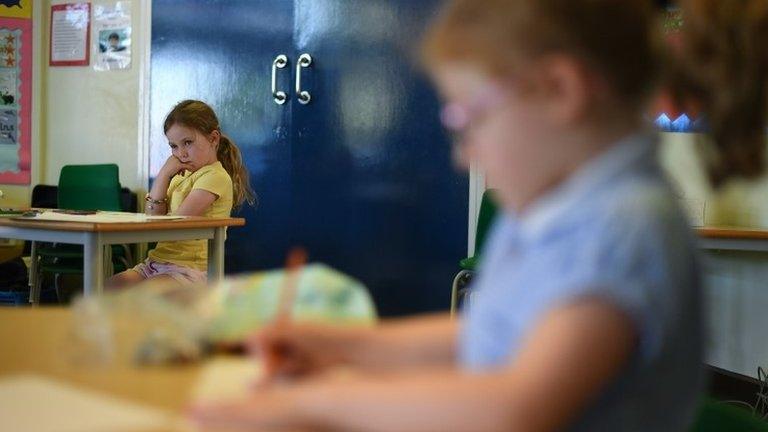
- Published8 January 2021
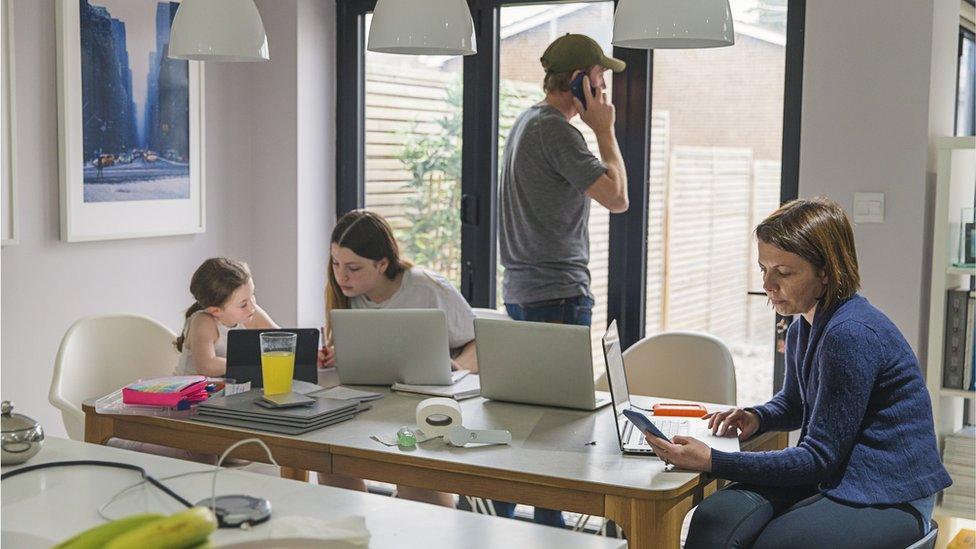
- Published20 December 2020
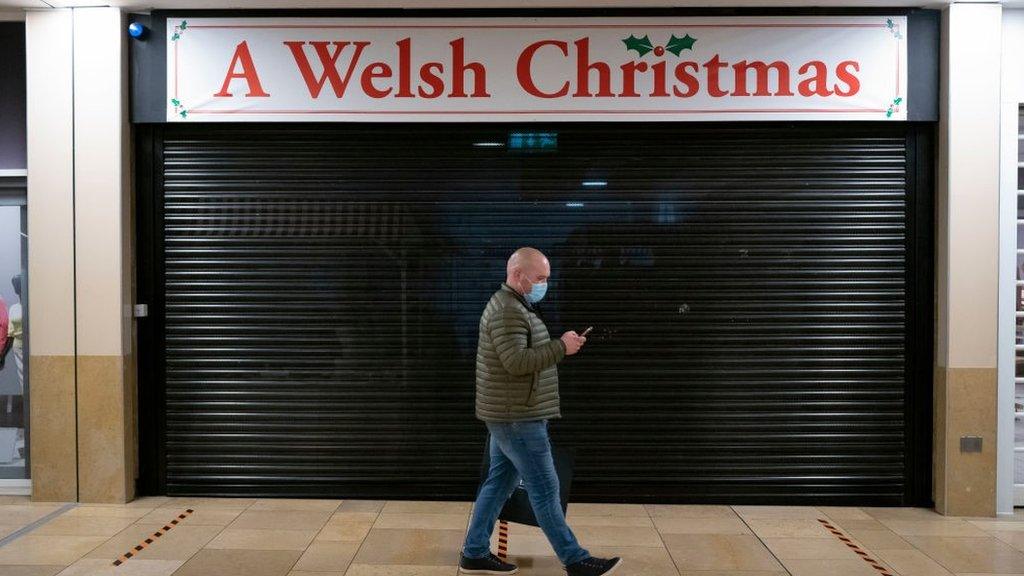
- Published27 May 2022
